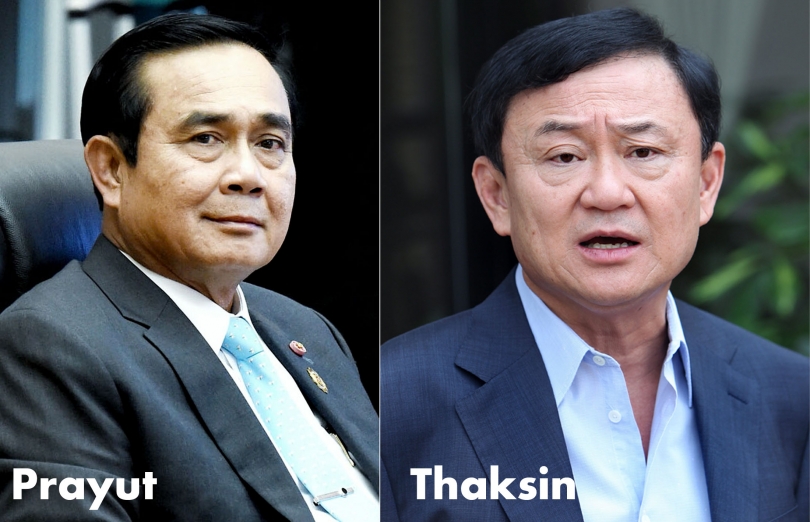Prayut govt ‘the most popular in years’

Poll respondents concerned about economy, southern insurgency and morality.
THE military-led government is more popular than any other administration in recent times, but its popularity comes at a time when people are concerned about economic downturn, the insurgency in the far South and the public’s rights, according to results of a Suan Dusit poll released yesterday.
Of 1,254 people surveyed across the country, almost 78 per cent like Prime Minister General Prayut Chan-o-cha’s government for its decisiveness, demonstration of clear working timelines and anti-graft policies.
The junta government proved more popular than the Thaksin Shinawatra government, which was favoured by 70 per cent of respondents surveyed for the good economy under its stewardship, its populist policies and the country’s international standing at the time.
The Abhisit Vejjajiva, Chuan Leekpai and Yingluck Shinawatra governments polled 63 per cent, 59 per cent, and 54 per cent respectively.
The survey was conducted from Monday to Saturday under the title “People’s opinions toward Thai governments”.
When asked what has worsened during Prayut’s rule, 76 per cent pointed to the economy and prices for agricultural goods, almost 67 per cent said Southern insurgency and bombing incidents, and more than 56 per cent said rising conflicts and controls over people’s rights and freedom.
Asked what has remained unchanged, almost 81 per cent said expensive living costs, nearly 80 per cent highlighted fractious politics, and more than 60 per cent said crime issues and declining social morality.
Asked what political issues interested them, more than 83 per cent said the use of the interim charter’s Article 44 in suppressing corrupt civil servants and politicians as a quick way to deal with the country’s prominent problems.
Almost 75 per cent focused on the charter draft and registration of political parties as they wanted the national election to happen soon; 68 per cent pointed to the long-running Southern insurgency and bombings because they want peace returned; while more than 67 per cent were interested in the Prayut administration, and nearly 56 per cent sought news on possible graft related to state-budget management.
Meanwhile, Bangkok Poll results revealed yesterday that of 1,156 people surveyed countrywide, more than 26 per cent would support Prayut staying on as premier in a national election, while almost 4 per cent would back Yingluck and Abhisit.
The survey was conducted under the title “Popularity of Thai political parties a month after the referendum on the charter draft”.
Asked what political party they favoured, almost 17 per cent went for the Democrats, 15 per cent preferred Pheu Thai and 1 per cent said Chart Thai Pattana. All parties had declining popularity compared with a May survey, Bangkok Poll said.
“Populist policies could be good”
Almost 60 per cent of surveyed people disagree with parties’ pro-populism approach, as they believed it benefitted only certain groups, while 32 per cent agreed with it. Around 64 per cent, however, agreed if parties use populist policies in creative ways to solve issues relating to expensive living costs, agriculture and education.
In a related development, Super Poll yesterday released results of a survey conducted under the title “[The referendum’s] additional question and public confusion and concerns”. The question, approved in the referendum, calls for the two houses in Parliamentary to jointly select the prime minister.
Legal experts are considering the question based on what extent it should be interpreted and how the charter draft should be amended accordingly. The junta government has voiced its proposals to charter drafters on the issue.
Of the 1,559 people surveyed nationwide from Monday to Saturday, almost 86 per cent admitted to confusion on the issue and nearly 65 per cent – 5 per cent more than those surveyed last month – also admitted to being worried over the issue.
Asked for public suggestions on the issue, almost 55 per cent wanted responsible officials to reach a mutual agreement before presenting the matter to the public, 48 per cent wanted to hear useful information from the government, nearly 42 per cent said political blocs should seek common ground, and more than 38 per cent said the government should not spark political conflict.
RELATED
